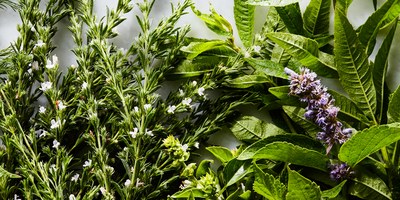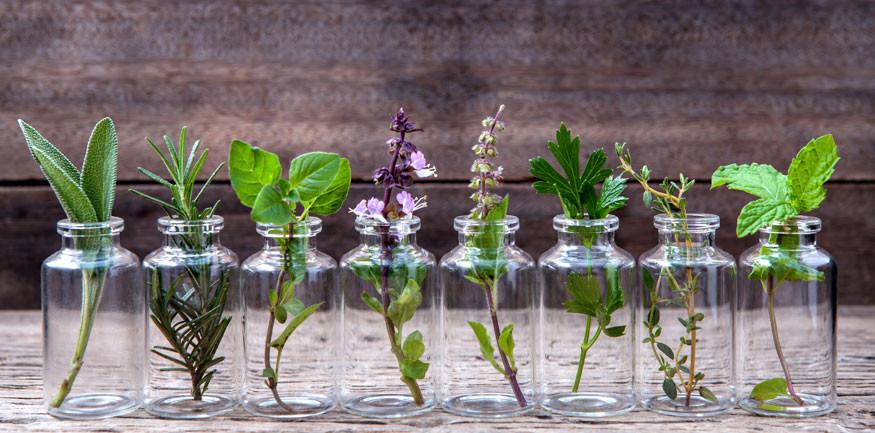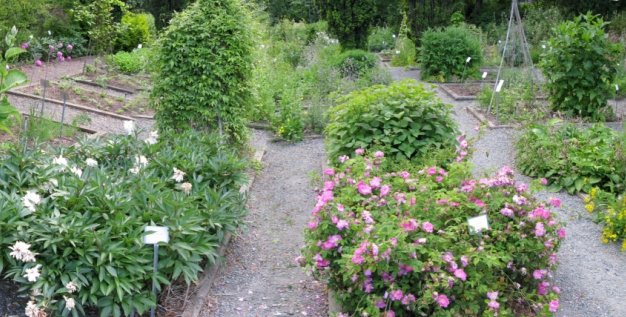Uses of Herbs in Natural Health
Natural health is comprised of many different disciplines. There are supplements to take, exercises to do, special teas to drink, or breathing exercises that allow your natural flow of positive energy. One of the many forms of natural health comes from herbs. The use of herbs has been found historically, dating back to as early as records have been kept. One will see references in the Bible, history books, and in journals of medicine. Another word for herbs is botanicals which refer to herbs and plant products.
Some skeptics say that uses of herbs only are in our mind, and that they do not truly aid in the healing process. However, some of these skeptics also admit that the original foundation of some of today’s medicines do come from nature. Aspirin is from the derivative of willow bark. Historically people have used teas made with willow bark to reduce fevers. Other herbal medicines were used to help treat constipation, ease pain, or act as a stimulant or a relaxant. Some recent research has shown that some herbs work just as good has the conventional medicines found at your local pharmacy.
There are many different herbs used both in past and in present. Some have been tested for their effectiveness only in animals while others have human trials to back up their claims. Some people do not pay attention to today’s studies but rely on family history of use. For example, Mom always gave ginger ale for a stomach ache and Grandma swore that a strong herbal tea would knock out that fever. Some herbs have multiple medicinal uses and may be ingested in some cases and used topically in others.
Making Sense of Herbal Terminology
Herbal cures have their own set of vocabulary. Many are used to show how the herb is mixed with a compound. A few examples of vocabulary words used are:
• Tinctures – exact meaning is the “alcoholic extracts of herbs.” This is obtained by combining the herb with 100% ethanol alcohol, resulting in an end percentage of 40-60% ethanol once combined
• Elixirs and Herbal Wine – This also pertains to the alcoholic extract of the herbs. Elixirs are mixed with spirits such as vodka while herbal wine is clearly made with wine. Both types produce an ethanol percentage rate of 12-38%
• Tisanes – This pertains to using herbs mixed with hot water
• Decoctions – Boiling the herbs a long time and used with roots or bark
• Macerates – This occurs when herbs such as sage and thyme are infused with cold water and allowed to sit up to 10 hours
As stated above, some herbal medicines are best used topically and can cure a variety of ailments. These are called topicals and they also have their own vocabulary. A few that one may come across are:
• Essential oils– These are the herbs concentrated and many can burn or harm the skin if used directly (undiluted). It is advised to mix the essential oil with olive oil to use safely and effectively.
• Poultices – This is also known as a compress. It is used by taking the herb, crushing it, rehydrating with a small amount of water, and applying to the wound directly or wrapped in a bandage.
A couple of other ways that herbs are used and applied are:
• Syrups – These are the herb extracts that are mixed with syrups or honey. A high percentage of sugars used are greater then the equal parts of water and herb used. This is processed for three weeks.
• Inhalation – Used as an aromatherapy and not direct inhaling, the herbs can help in deep cleansing of the skin and tools for relaxation.
Many Healing Herb Plants
There are many herbs and plants used in herbal natural healing. They help prevent and cure a number of ailments and some may have multiple healing qualities. There are countless derivatives of plants and herbs and to list them all would create its own dictionary. A few to think about are:
• Soy – This and other plants contain phytoestrogens which are plants with estrogen activity. They have benefits for symptoms of menopause.
• Echinacea – Strong extracts seem to limit the length and the severity of the common cold.
• Elderberry – Used in literary references in the form of wine but also used to speed the recovery of type A and B flu.
• Feverfew – Used for migraine headaches for patients that are not pregnant.
• Pawpaw – Can be useful for killing worms or lice
• Honey – Not only popular with bears but for people with high cholesterol and the need to heal some wounds.
This is just a sampling of the healing power and uses of herbs. There are many to discover and the effectiveness will differ in people just like the over the counter medicines that are offered to us today.


